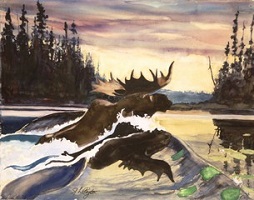




Honoring the pride of the Northland! We serve to highlight our communities with honest reporting as progress is dependent on facts. The Northland
is rich with outdoor activities and beautiful landscapes found in few places around the world. We respect the need to preserve our environment while
also allowing for the sustainable incomes and livelihoods of our residents. Both are needed and possible. . .
(Pictures by John Peyton, late Duluth artist)
Northland Watch: When you want or need your news fast! The only place you're going to find the good and bad in your community.